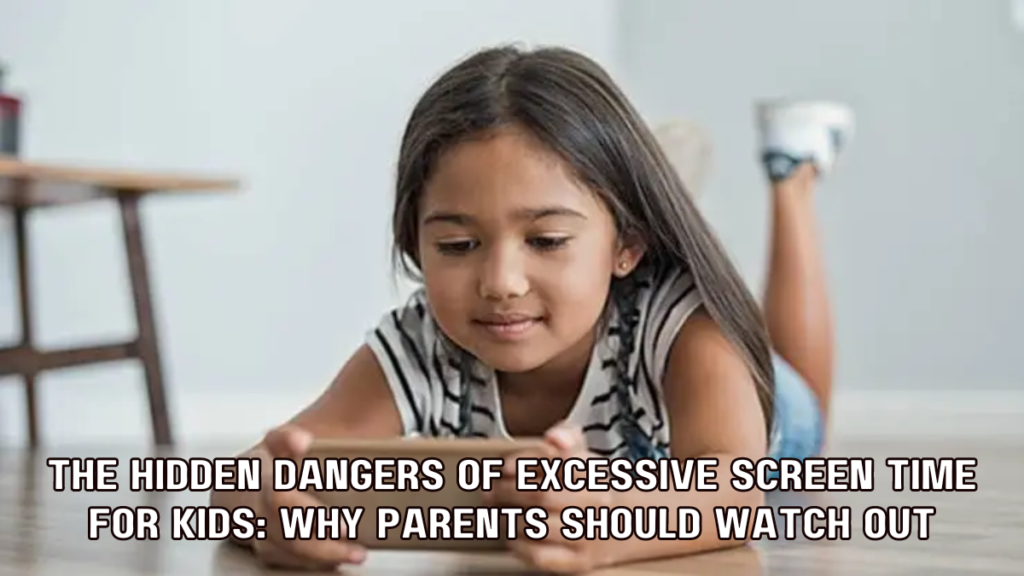Introduction:
In today’s digital age, it’s not uncommon to see children glued to their mobile devices, whether it’s for gaming, watching videos, or scrolling through social media. While technology has undoubtedly revolutionized the way we live, work, and play, excessive screen time among kids can pose serious risks to their physical and mental well-being.
As a parent, it’s essential to be aware of these hidden dangers and take proactive steps to limit your child’s screen time. Here are some reasons why:
Eye Strain and Digital Eye Syndrome:
Staring at screens for prolonged periods can cause eye strain, dryness, and discomfort, collectively known as digital eye syndrome. Children’s eyes are still developing, making them more susceptible to these issues. Symptoms may include headaches, blurred vision, and difficulty focusing.
Disrupted Sleep Patterns:
The blue light emitted by screens can interfere with the body’s production of melatonin, a hormone that regulates sleep. Excessive screen time, especially before bedtime, can disrupt sleep patterns, leading to insomnia and daytime drowsiness. Poor sleep quality can impact a child’s mood, cognitive function, and overall health.
Sedentary Lifestyle:
Spending too much time on mobile devices often means less time for physical activity and outdoor play. This sedentary lifestyle can contribute to obesity, poor posture, and muscular-skeletal problems. Encouraging children to engage in active play and sports is crucial for their physical development and overall well-being.
Social and Emotional Impact:
Excessive screen time can hinder children’s social and emotional development. Spending hours on social media or gaming can lead to isolation, reduced empathy, and difficulty forming real-life connections. It may also expose them to cyberbullying, inappropriate content, and unhealthy online relationships.
Negative Impact on Academic Performance:
Studies have shown a correlation between excessive screen time and lower academic achievement. Excessive use of digital devices can distract children from homework and studying, impairing their ability to focus, retain information, and perform well in school.
So, what can parents do to mitigate these risks and encourage healthy screen habits?
Set Limits:
Establish clear guidelines on screen time usage and stick to them consistently. Encourage alternative activities such as reading, playing outside, or engaging in creative hobbies.
Lead by Example:
Children learn by example, so be mindful of your own screen habits. Limit your own screen time and prioritize quality time spent together as a family.
Create Tech-Free Zones:
Designate certain areas of the home, such as the dinner table or bedrooms, as tech-free zones to promote face-to-face interaction and relaxation.
Use Parental Controls:
Take advantage of parental control features available on devices and apps to restrict access to inappropriate content and monitor your child’s online activity.
Encourage Balance:
Emphasize the importance of balance in all aspects of life, including screen time. Help your child find a healthy equilibrium between technology use, schoolwork, extracurricular activities, and social interactions.
Conclusion:
By being mindful of the potential dangers of excessive screen time and taking proactive steps to limit it, parents can help ensure their children grow up healthy, happy, and well-rounded individuals. Let’s empower our kids to embrace technology responsibly while also nurturing their physical, mental, and emotional well-being.

